Unlocking the science behind traditional farmer practices: An interview with Muneta Grace Kangara
November 24, 2021
Muneta Grace Kangara is a Research Fellow on the Translating GeoNutrition: Supporting policies to reduce mineral micronutrient deficiencies in Zimbabwe project. She was recently awarded a Rank Prize Visionary Award for Early Career Researchers in Nutrition (2021). We spoke to Muneta about her work, how she became a researcher, and why she is passionate about …
Swift: A ten minute coffee with Prof Levi Yant
November 17, 2021
Levi Yant has recently been promoted to Professor in the School of Life Sciences. He is a Future Food Beacon group leader. Before this he was a Project Leader at the John Innes Centre (Norwich, UK). His independent research career began in 2014 as a Project Leader at Harvard University (USA), where he had previously …
(Re)thinking a different future: sociological perspectives of climate change
November 12, 2021
It is time to employ some radical thinking on the future of our food systems, write Lexi Earl, Anne Touboulic and Lucy McCarthy The imperative to rethink our food systems to avoid further long-term damage to our climate has never been more pertinent. Yet much of the thinking on the future of food systems is …
Small Islands and Developing States, food systems and climate change
November 11, 2021
The food systems of Small Islands and Developing States are particularly susceptible to climate change. They therefore require different strategies and thinking on this challenge, argue Ee Von Goh, Chiew Foan Chin, Christina Vimala Supramaniam, Andrew Clarke, and Pau Loke Show. Small island developing states (SIDS) are disproportionately affected by climate change. SIDS are considered …
Improving farmer livelihoods through better cocoa bean fermentation
November 10, 2021
We can support small farmers by using science to understand cocoa bean fermentation, ensuring more consistent beans, and better incomes, write David Salt, David Gopaulchan, and Gabriel Castrillo Cocoa is a significant global commodity, generating income, export revenues, and employment for producing countries. Cocoa is grown across the equatorial belt, by some six million smallholder …
The nutritional quality of crops and the impact of climate change
November 5, 2021
Today at COP26, discussions are focused around public empowerment and education in climate action. Galvanising public action is difficult but not impossible. Grace Kangara explains how promoting locally available organic nutrient resources to farmers is key to both improving soils and improving the nutritional quality of crops, ensuring the availability of micronutrient-dense foods at the …
Meeting the protein needs of a growing, and aging, global population with healthy and sustainable protein sources
November 3, 2021
We need sources of protein that don’t harm human or planetary health, writes Prof Andy Salter. Humans require sufficient supplies of dietary protein, of appropriate quality, to grow and maintain health throughout their lifespan. Protein quality is dependent on both the amount of essential amino acids contained and its digestibility. While animal-derived foods represent rich …
The problem of cadmium in cocoa beans
November 2, 2021
We are identifying ways to produce safer chocolate in order to help small-holder farmers, say David Salt, David Gopaulchan and Gabriel Castrillo Cadmium is a potentially toxic heavy metal that can be found in various foods through bioaccumulation from the soil. It occurs naturally in soils (from volcanic activity, forest fires, and rock weathering), but …



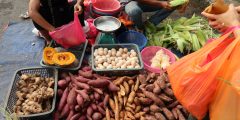
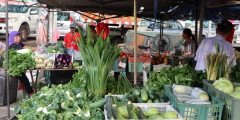
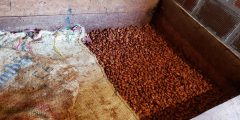
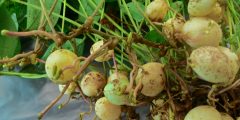

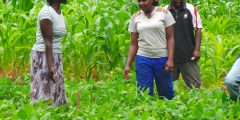
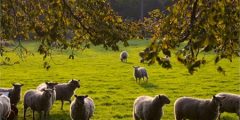
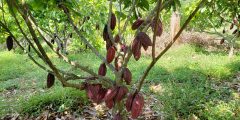
Recent Comments